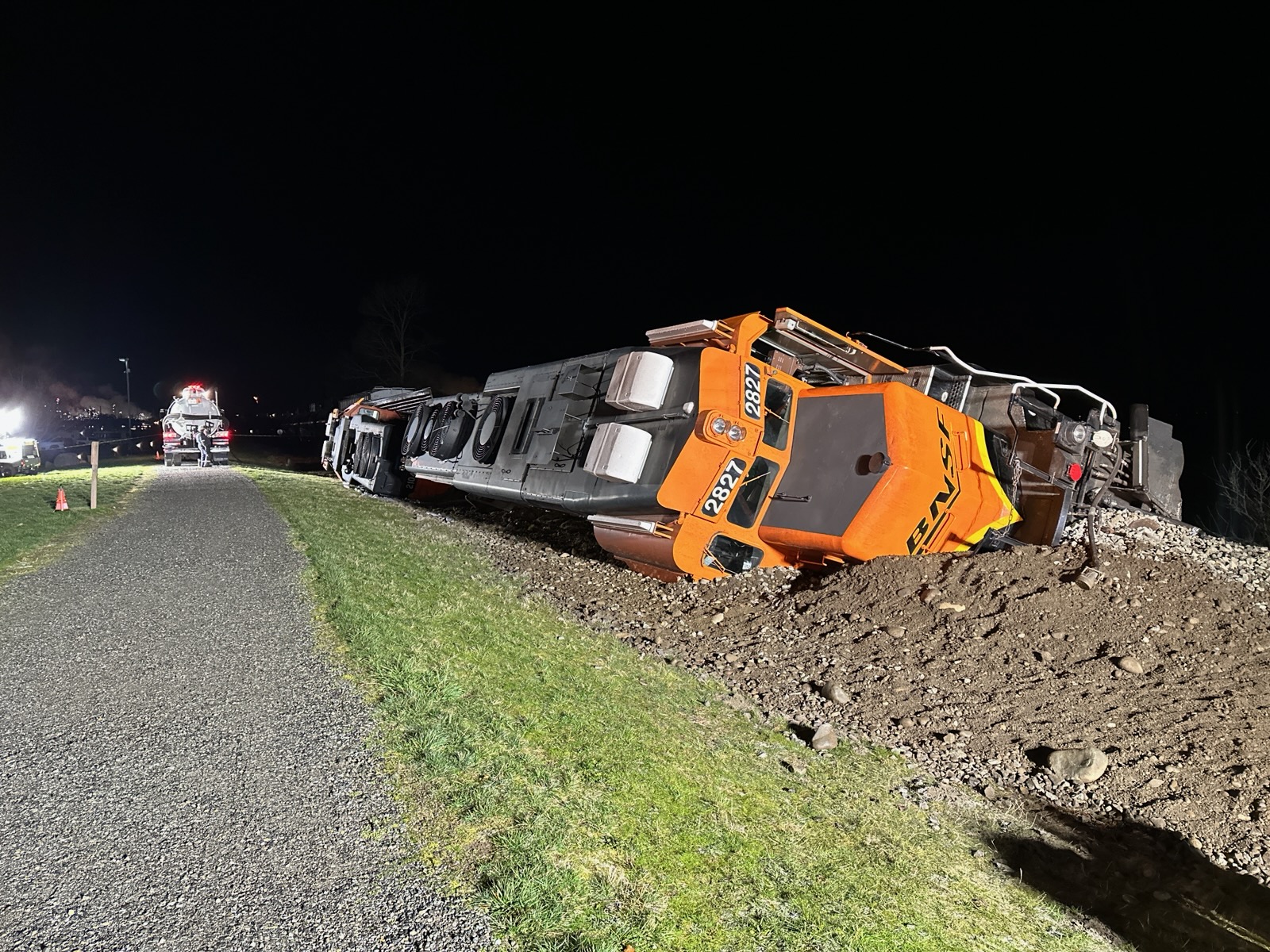
- Details
- By Native News Online Staff
Yesterday, a federal judge in Seattle ruled that BNSF Railway must pay the Swinomish Indian Tribal Community nearly $400 million for trespassing on the tribe’s reservation for nearly a decade.
In April 2015, the tribe filed suit against BNSF, the largest freight railroad in the United States, for violating the terms of an easement agreement it signed in 1991 that set a limit of no more than 25 cars passing its reservation per day.
But beginning in 2012, BNSF began exceeding that allowance without notifying the tribe, running at least six 100-car trains traveling in each direction across the tribe’s reservation per week, according to the lawsuit.
In an eighteen-page ruling issued on June 17, District Court Judge Robert Lasnik ordered that BNSF Railway pay total trespass profits of $394 million to the Swinomish Indian Tribal Community for trespassing between 2012 and 2021.
“We know that this is a large amount of money,” Steve Edwards, Chairman of the Swinomish Indian Tribal Community, said in a statement. “But that just reflects the enormous wrongful profits that BNSF gained by using the tribe’s land day after day, week after week, year after year over our objections. When there are these kinds of profits to be gained, the only way to deter future wrongdoing is to do exactly what the Court did today – make the trespasser give up the money it gained by trespassing.”
Chairman Edwards added that the tribe first tried to resolve its conflict with BNSF out of court through formal letters to the company, as well as tribal staff and tribal lawyers personally meeting with BNSF representatives “multiple times from 2012 to 2015.”
“But in the end none of that mattered,” Chairman Edwards said. “BNSF kept running its oil trains and despite the letters and despite the meetings, BNSF told the tribe in early 2015 that it was just going to keep running those 100-car trains across the reservation. That’s when we knew we had to ask the Federal Court to protect our Tribal rights in our reservation lands.”
The United States District Court in Seattle ruled early in the Tribe’s 2015 lawsuit that “BNSF neither apprised the tribe of its cargo nor obtained the tribe’s written agreement to an increase in the number of trains and the number of cars in those trains.”
But BNSF argued that its obligations to its shippers superseded its obligation to the tribe under the easement agreement. The District Court issued an order upholding the tribe’s rights in 2017, and BNSF filed an appeal to the United States Court of Appeals for the Ninth Circuit. In 2020, the Court of Appeals rejected BNSF’s argument.
Chairman Edwards said that he expects BNSF to appeal this week’s decision, as they have before in this case, “But we have faith and we look forward to defending Judge Lasnik’s decision to protect our homeland.”
More Stories Like This
Native News Weekly (August 25, 2024): D.C. BriefsNavajo Nation Mourns the Passing of Former Vice President Rex Lee Jim
Deb Haaland Earns Endorsement From Communications Workers of America Local 7076
University Soccer Standout Leads by Example
Two Native Americans Named to Democratic Congressional Campaign Committee's“Red to Blue” Program
Help us defend tribal sovereignty.
At Native News Online, our mission is rooted in telling the stories that strengthen sovereignty and uplift Indigenous voices — not just at year’s end, but every single day.
Because of your generosity last year, we were able to keep our reporters on the ground in tribal communities, at national gatherings and in the halls of Congress — covering the issues that matter most to Indian Country: sovereignty, culture, education, health and economic opportunity.
That support sustained us through a tough year in 2025. Now, as we look to the year ahead, we need your help right now to ensure warrior journalism remains strong — reporting that defends tribal sovereignty, amplifies Native truth, and holds power accountable.
 The stakes couldn't be higher. Your support keeps Native voices heard, Native stories told and Native sovereignty defended.
The stakes couldn't be higher. Your support keeps Native voices heard, Native stories told and Native sovereignty defended.
Stand with Warrior Journalism today.
Levi Rickert (Potawatomi), Editor & Publisher


